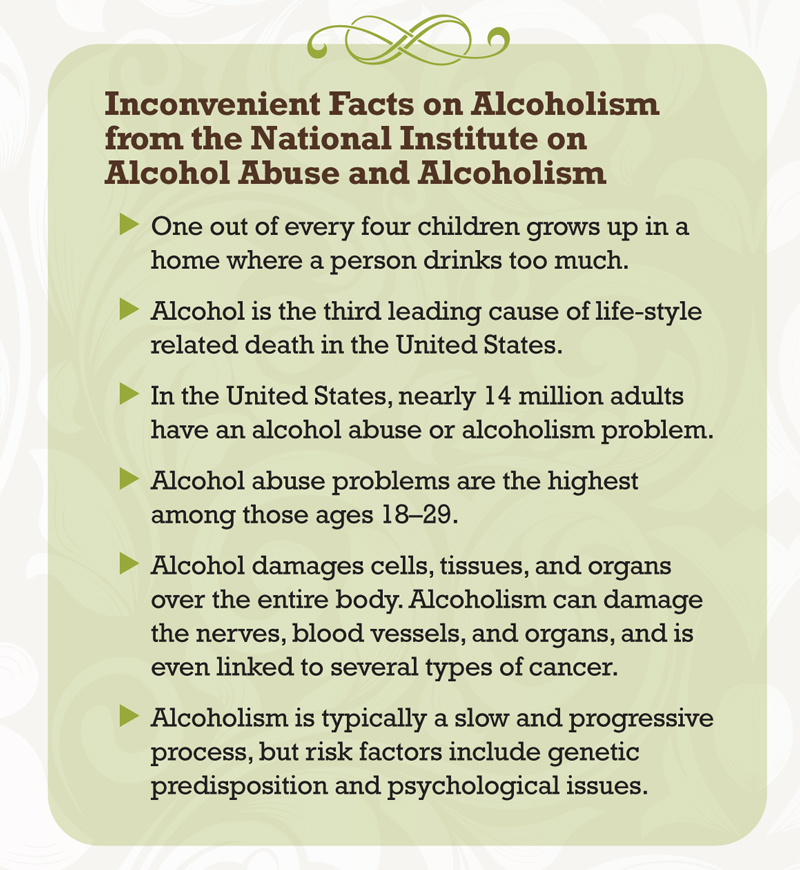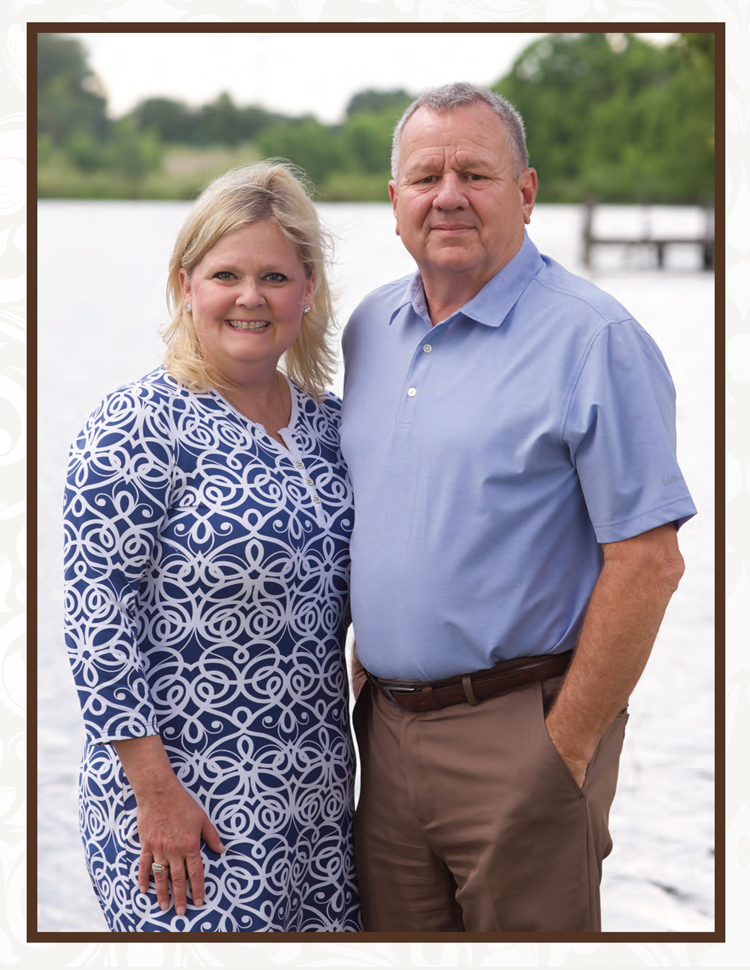
Ruth Ann Rigby
Addict to Advocate
The worst day of her life turned out to be the best day. Much against her will, she found herself in a Mississippi State Hospital patrol car being transported to the alcohol and drug unit as she was being admitted to Whitfield. She was furious. Everything had happened so fast. Ruth Ann Rigby was defiant and she had no intention of staying there.
Her husband, Jody Rigby, who was at the time the head of Governor Fordice’s security team, made a tough-love decision. They had barely been married a year, but she was out of control with her alcohol and drug dependence. He had seen enough and had garnered enough professional experience to know that he could not fix the problem. And time was everything. When he sought answers and advice from the experts at the Mississippi Bureau of Narcotics, they did not mince words, “If you love her, then get her some help. If not, go buy her a cemetery plot and plan her funeral.”
Jody was and is a serious, no-nonsense law enforcement veteran. He took action right away with the help of their extended family members. And if it was the worst day of Ruth Ann’s life, it was pretty much the worst day of his, too.
I Would Never
Ruth Ann is the adult child of an alcoholic. She was six when she realized that her mother’s attachment to alcohol caused a lot of problems and that when she drank she became another person. The family might talk about it among themselves, but they never mentioned it in the outside world. The stigma was too great.
When the family finally intervened on behalf of her mother, Ruth Ann was 18 years old. Unlike Ruth Ann, her mother went compliantly to treatment, accepted responsibility for her illness, and lived the rest of her life in recovery; she had 25 years of sobriety when she died. Gail Morrison became the mother she had never been during Ruth Ann’s childhood and her best friend and Hero.
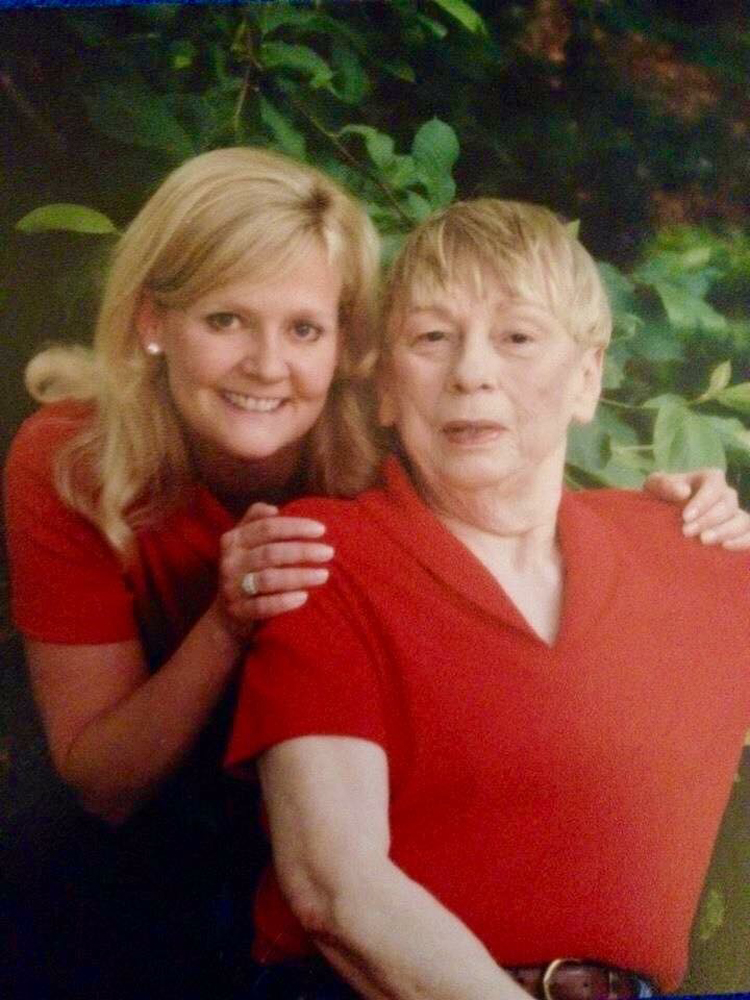
Ruth Ann and her mom Gail had a close mother and daughter relationship after her mother entered treatment and lived the rest of her life in sobriety.
Their relationship was a close one, but Gail could not go back in time to watch her daughter show horses competitively all across the Southeast as a little girl, or perform in the church Christmas program, or sing in the children’s choir at First Baptist. She had missed so much of Ruth Ann’s earlier years due to her drinking.
One emphatic declaration of Ruth Ann’s childhood was, “I will never grow up to be like my mother. I will not become an alcoholic. I will never do that to someone else’s life.”
Except that she almost did. She became what she feared the most after a horrific trauma.
She was a bride of six months when she stopped for gasoline on her way home from her job as a retail manager one night. As she stood there by the gas pump with the hose in hand, she was violently attacked. Terrified, she fought with everything she had to fend off her assailant. Ruth Ann was evidently not the easy mark she had appeared to be! The man finally disappeared on foot and a distraught, bruised and beat up but alive Ruth Ann was still in possession of her vehicle.
She later learned that this particular service station ran a notorious drug business. The world would say she was “lucky” to be alive. More likely luck had nothing to do with it. God had everything to do with it—it was His plan and her journey.
Ruth Ann began to have nightmares, flashbacks, and unmanageable anxiety—all symptoms of Posttraumatic Stress Disorder (PTSD) resulting from the being attacked. She “couldn’t get settled” at night and began to medicate the pain of the hurt and hole in her soul with alcohol. But alcohol did not completely “fix” her anxiety and pain, so she went to see her physician, described her symptoms, and he gave her a prescription. That was 22 years ago, and protocol was different, and so were the statistics on drug and alcohol addiction. And so was the follow-up.
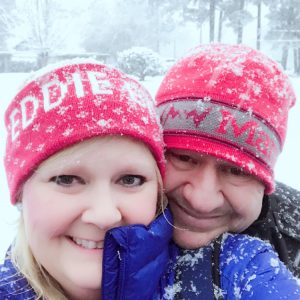 A few weeks before being committed to the State Hospital by her husband and the order had to be signed by a judge, she had been evaluated at a local hospital. Since Ruth Ann had become such a good manipulator, they said she was fine and didn’t have any issues. But as she began to mix the prescription drugs with alcohol, everything got worse and she spiraled out of control very quickly.
A few weeks before being committed to the State Hospital by her husband and the order had to be signed by a judge, she had been evaluated at a local hospital. Since Ruth Ann had become such a good manipulator, they said she was fine and didn’t have any issues. But as she began to mix the prescription drugs with alcohol, everything got worse and she spiraled out of control very quickly.
Her life was a train wreck.
“In a period of six or seven months, my life was totally—and I mean totally—out of control. I was hallucinating, having flashbacks and disrupting everyone’s lives to the point that it was unmanageable,” Ruth Ann says.
Jody made the only choice he could if he wanted to save his wife’s life. But it was not pleasant.
Chalk it up to his faith and his law enforcement training, but he knew he could risk her hating him if his actions could restore her wellbeing and sanity from her addiction. Today, Ruth Ann will tell you that Jody is still her hero.
Reversing the Downward Spiral
When Ruth Ann met her assigned counselor at Whitfield after detoxing for two weeks, she was quick to let the counselor know she did not belong there. She says, “I fought with everybody, in the beginning, to get out of there.”
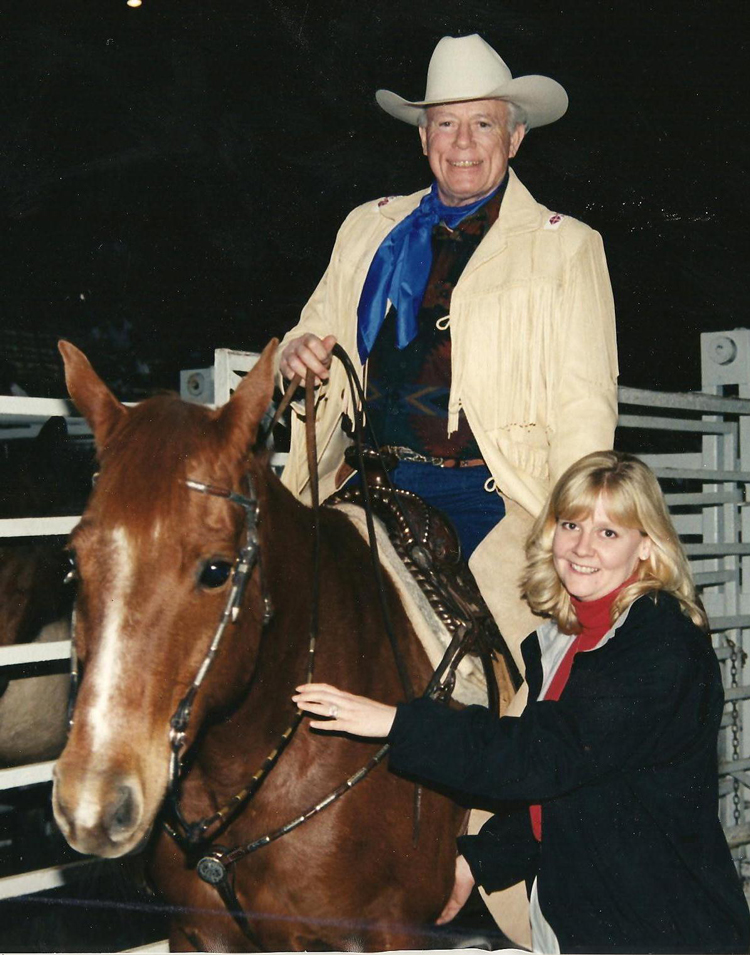
Jody Rigby was Chief of Governor Fordice’s Security Detail. The Rigbys and the Governor shared a love for all things equine.
Jody describes getting a call from her treatment team about 14 days after she was admitted telling him, “She has called her attorney and they are about to serve papers on us. She’s talking about leaving. Can you come to a family meeting?”
Calm, collected Jody sat down with her counselors who had obviously done this before. They just had not done it with Captain Joseph Rigby.
“So, tell us what you think about Ruth Ann leaving here,” they said.
Jody, a man of few words and with a poker face said, “If she leaves here and gets to the door, the first thing that’s going to hit her on the other side are divorce papers.”
The counselors said, “Well, did you tell her that?”
They had Ruth Ann brought to the conference room, and Jody told her exactly that.
End of discussion. Ruth Ann agreed to stay and save her life. That was the first smart choice she had made in a while, and it likely changed the entire trajectory of her life.
Hitting Her Knees
“I had grown up at First Baptist Church Jackson hearing Frank Pollard preach,” she says. “If the doors opened, my dad saw that I was there. I was very involved in Sunday mornings, Sunday nights, Wednesday night activities, children’s choir, and youth groups. The adults, along with my friend’s families, were a huge lifeline for me whether they knew it or not. Church provided nurturing and encouragement and helped guide me in ways I did not realize at the time.” This turned out to be her saving grace down the road.
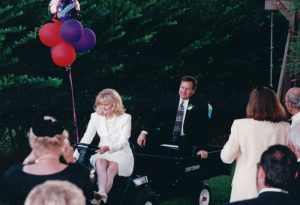
The newly married couple makes their getaway from their reception on a lawn mower with Ruth Ann at the wheel! Jody had his car well hidden in an undisclosed location to protect it from the decorating antics of his trooper friends!
Some very positive seeds were sown in Ruth Ann’s life in those early years. She had drifted in recent years, but the roots were there. Describing herself as “spiritually bankrupt” by the time she got to treatment, she remembered enough from those formative years in church to realize she was going to need some help from God to change her situation. When Ruth Ann resigned herself to the fact that she was not leaving treatment, she began to listen to the people who were trying to help her. There was finally a willingness on her part to begin the recovery process.
Ruth Ann’s counselor asked her if she had brought anything that meant something to her with her to treatment. Strangely—or maybe not—she had brought her Bible. The counselor said, “I want you to put it under your bed, and when you are down on your knees, I want you to pray for acceptance and surrender.”
 “I hit my knees and surrendered for the first time,” Ruth Ann says. “And when I did that, my life changed.” A spiritual awakening had begun. She approached her recovery with the same passion she had once approached her escape from reality.
“I hit my knees and surrendered for the first time,” Ruth Ann says. “And when I did that, my life changed.” A spiritual awakening had begun. She approached her recovery with the same passion she had once approached her escape from reality.
Twenty-one years later, her passion and purpose to serve God remain just as strong.
Ruth Ann was an inpatient for six months, and she did absolutely everything they asked of her. She praises her treatment team for their compassion, their professional expertise, and for the way they pushed her as well as encouraged her. And that rediscovered relationship with the Lord was the glue that made restoration possible.
“My life changed because I became willing and accepting—but more importantly, my relationship with God returned,” she says.
Beginning Again
When Ruth Ann was discharged from the State Hospital, she and Jody felt like moving straight back home was not the right thing to do. The Rigby home was situated on a plot of family land in close proximity to extended family. Sometimes old patterns and sensitivities can create a toxic environment for a person in early recovery. They chose the option that was healthiest for Ruth Ann.
“I had to make my recovery priority one, and we were willing to go to any length to maintain my sobriety and to establish healthy boundaries. I had to then focus on my aftercare plan,” she says.
 Jody and Ruth Ann rented a tiny apartment near the State Hospital, and in the surrounding areas Ruth Ann attended daily Twelve Step meetings and continued working with her therapist and her AA sponsor. She got a job teaching cooking lessons for children at The Everyday Gourmet which let her focus on her recovery, and with Jody’s love and support, she lived one day at a time in total sobriety.
Jody and Ruth Ann rented a tiny apartment near the State Hospital, and in the surrounding areas Ruth Ann attended daily Twelve Step meetings and continued working with her therapist and her AA sponsor. She got a job teaching cooking lessons for children at The Everyday Gourmet which let her focus on her recovery, and with Jody’s love and support, she lived one day at a time in total sobriety.
An entire year later, they moved back to their home in Northwest Jackson. The road home had been long and hard, but there were deep, rich, and wonderful things they had discovered about themselves and about each other. And Ruth Ann also mended her relationship with her mother. It had all been worth the effort.
Ruth Ann says, “It is truly a miracle and God’s plan and His Purpose that we have been able to stay together through a rough journey. We have faced and overcome many medical challenges in recovery with our support system, including our church family at Broadmoor—which has been a huge part of our journey. Through our challenges, we grew into a couple that loves our Lord greatly. We feel like He has called us to serve Him and to help those who struggle. We have done this journey together, and that in itself has strengthened us. We pray together twice a day, and to this day, we hold each other accountable.
Ruth Ann had made one big decision during her treatment. She would go back to school and become a counselor. Because her recovery team made such a huge impact on her, she wanted to become a member of a team that made a difference in the lives of people who were trapped in the same addiction that she now understood so well.
 She began volunteering at St Dominic’s Behavioral Health. Ruth Ann’s mother had been a patient at Doctors Hospital before St. Dominic purchased them, and the physician, therapists, and counselors who had been instrumental in helping her mother became important mentors to Ruth Ann. “I was doing everything right in recovery,” she says, “and the doors just began to open.” She staffed several positions, worked any shift she was asked to cover and credits the people she worked under at St. Dominic’s with giving her a strong foundation that has helped her every day of her life and professional path.
She began volunteering at St Dominic’s Behavioral Health. Ruth Ann’s mother had been a patient at Doctors Hospital before St. Dominic purchased them, and the physician, therapists, and counselors who had been instrumental in helping her mother became important mentors to Ruth Ann. “I was doing everything right in recovery,” she says, “and the doors just began to open.” She staffed several positions, worked any shift she was asked to cover and credits the people she worked under at St. Dominic’s with giving her a strong foundation that has helped her every day of her life and professional path.
She later worked for Pine Grove Behavioral Health in Hattiesburg for 9 years.
Ruth Ann now works as Director of Business Development for Capstone Treatment Center in Searcy, Arkansas, a Christian facility for adolescent and young adult males up to the age of 26. Each employment opportunity has widened her circle of contacts and her circle of influence. Her name is known far and wide across the country as a valuable and knowledgeable resource helping families find the best help for their loved one. She would tell you that she’s simply doing what God wants her to do.
She was instrumental in organizing the Opioid and Heroin Mississippi Drug Summit the past two years. The two-day seminar, held in Madison, was structured to bring together 3 communities—public safety, public health, and the public. Its aim is to inform the community about the growing epidemic of opioid and heroin abuse in the state of Mississippi.
Speakers included law enforcement, physicians, pastors, counselors, people in recovery, and families whose lives have been impacted by addiction. Resources for families were on site because the person with the drug or alcohol dependency is not the only one affected by this illness. She is working now with the committee planning the 2019 event.
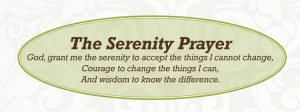 Having lived through Ruth Ann’s trauma, addiction, and recovery, Jody is as much an advocate of reversing the ravages of the drug epidemic as she is. He is a living testimony that families can be put back together. Their marriage is stronger, closer, and more joy-filled than he would ever have dreamed on that dark day in 1997 when he committed his wife to the State Hospital.
Having lived through Ruth Ann’s trauma, addiction, and recovery, Jody is as much an advocate of reversing the ravages of the drug epidemic as she is. He is a living testimony that families can be put back together. Their marriage is stronger, closer, and more joy-filled than he would ever have dreamed on that dark day in 1997 when he committed his wife to the State Hospital.
“Her passion is to help others struggling,” Jody says. The very thing Satan attempted to use to destroy a life and a marriage was the very thing God chose to redeem and to use for His glory.
Today, Ruth Ann is very active in the community both locally and beyond. She is a member of Broadmoor Baptist Church, serves on the advisory board for the Center for Hope and Healing at Broadmoor, and is the past president of the Board of Directors at NCADD, which is the National Council on Alcohol and Drug Dependency, Central Mississippi Chapter.
She and Jody helped start First Responders of Mississippi (FROM), a 501(c)(3) organization created to make a positive difference in the lives of First Responder organizations, the heroes themselves, and their families, no matter the challenge. FROM celebrates its official launch with a luncheon August 15 at The Hilton at 1001 E. County Line Road in Jackson. All proceeds will benefit First Responders, their agencies and their families in their times of great need.
Today, Ruth Ann and Jody have a peaceful, lakefront view at the home they share with their three Cocker Spaniels Cailee, Darbee, and Graciee.
Ruth Ann Rigby can be reached at Ruthann@firstrespondersofms.com.
